Simon Makin
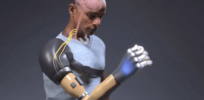
Bionic system allows man with above-elbow amputation to control every finger of a robotic arm
Most bionic limbs are controlled by electrical signals generated by muscles moving near the attachment site. But when an arm is amputated ...
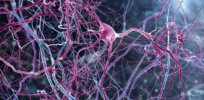
Atlas of cognition: Comprehensive inventory of brain cells in development
Looking for brain parts is driven by more than curiosity. Before the generations-long endeavor of deciphering the brain can proceed, ...
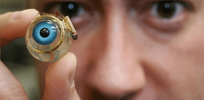
Bionic eyes: Generating visual perceptions and hope for those who cannot see
In the 1970s, [biomedical engineer William] Dobelle had shown that electrically stimulating visual brain areas (the visual cortex) caused people ...
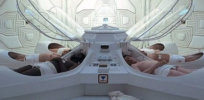
Human hibernation? Brain ‘snooze button’ could help astronauts survive long-term space travel
The mechanisms that control torpor and other hypothermic states—in which body temperatures drop below 37 degrees Celsius—are largely unknown. Two ...

Specialized ‘event’ cells help your brain keep all your memories organized, study suggests
Our recollection of events is usually not like a replay of digital video from a security camera—a passive observation that ...

Are babies born with brains ready to understand the world?
Neuroscientists understand much about how the human brain is organized into systems specialized for recognizing faces or scenes or for ...
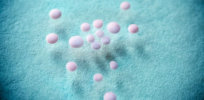
Brain organoids ‘giving insight’ into origins of autism, epilepsy and schizophrenia
Knowing how the human brain develops is critical to understanding how things can go awry in neurodevelopmental disorders, from intellectual ...

Deep sleep may be critical to flushing out your brain’s ‘toxic waste’
Why sleep has restorative—or damaging—effects on cognition and brain health has been an enduring mystery in biology. Researchers think cerebrospinal ...
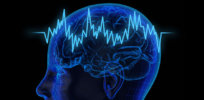
Electrical ‘brain ripples’ could boost memory for the elderly, Alzheimer’s patients
Specific patterns of brain activity are thought to underlie specific processes or computations important for various mental faculties, such as ...

There’s something in elderly blood that hurts our brains. Is this protein the culprit?
Something in elderly blood is bad for brains. Plasma from old mice or humans worsens cognition and biological indicators of ...

Ketamine for depression—what we know about how it changes the brain
The FDA's approval [of ketamine for depression] marks the first genuinely new type of psychiatric drug—for any condition—to be brought ...

Insomnia linked to neuropsychiatric disorders rather than ‘sleep regulation’, genetic studies show
[T]wo studies published [March 11] in Nature Genetics provide first peeks at the biological basis of insomnia, implicating specific brain regions and ...
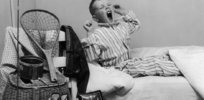
Are you an early bird or a night owl? Simple blood test could answer the question
Are you an early-rising lark or a night owl? These terms have gained scientific credibility, with researchers determining such differences ...
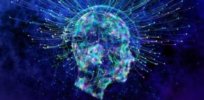
Cataloguing brain cells to better understand how our minds work
If you stumbled across a radio or a computer and had no idea how it worked, you would likely first ...

Could we ‘rewire our brains’ to stop sugar cravings?
Imagine if we could rewire our brains so that tastes we usually crave became unpleasant—or even nullify responses to taste ...
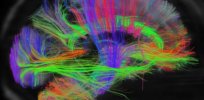
Faulty wiring? Tracing damaged circuits linked to autism, schizophrenia
Neuroscientists today know a lot about how individual neurons operate but remarkably little about how large numbers of them work ...
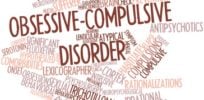
Inside the minds of people with obsessive-compulsive disorders
About 10 years ago David Adam scratched his finger on a barbed wire fence...As a science journalist and author of ...
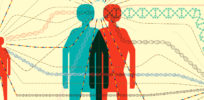
Hunting for DNA: Piecing together autism’s genetic puzzle
It’s been 10 years since Michael Wigler had a breakthrough revelation in autism genetics...[when he] reported that ‘de novo’ mutations — those that ...
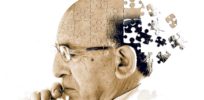
Closer to curing Alzheimer’s as new drug reaches landmark stage in clinical trial
Although there are currently no approved therapies that slow or stop progression of [Alzheimer's Disease], several approaches are showing promise ...
New, improved brain implants can ‘talk’ to single neuron
The GLP aggregated and excerpted this blog/article to reflect the diversity of news, opinion and analysis. Brain implants have been ...
Exercise, stress speeds brain’s ability to repair iteself
Running helps mice to recover from a type of blindness caused by sensory deprivation early in life, researchers report. The ...

